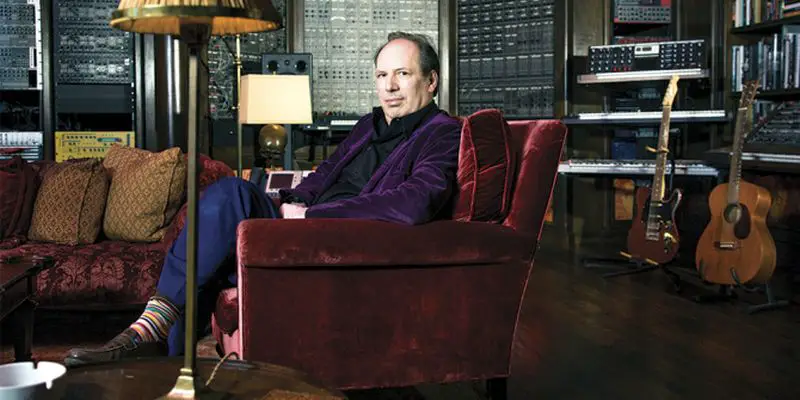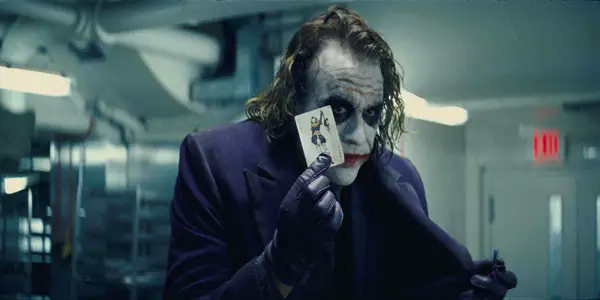The Beginner’s Guide: Hans Zimmer, Composer

Rachael Sampson is a Northern screenwriter and critic based in…
Composers are an underrated yet invaluable aspect to the world of cinema. They have the ability and duty to evoke various emotions in the audience, causing excitement, nerves, tears and goosebumps, sometimes all at once. It takes great skill to match the images on the screen to a suitable audio, and one man is notoriously known for his breathtaking soundtracks that complement filmmakers’ work and enhance the cinematic experience.
Responsible for the unforgettable soundtracks such as Inception (2010), Gladiator (2000), Interstellar (2014) and Pirates of the Caribbean (2006 – 2011), composer Hans Zimmer has provided audiences with spectacular and well-executed film music for decades. With his recently announced tour underway in April, this article will reflect on the past works of Zimmer, and what it is that makes his soundtracks so special and award-winning.
Early Years
Hans Zimmer is a German composer who has created music for over 150 films. His soundtrack for the Disney classic, Ennio Morricone
hit him in such a way that he instantly knew composing was the path for him.In the early stages of his career, Zimmer played keyboards and synthesizers in the 1970’s, with bands such as The Buggles and Krakatoa. Later on, the budding musician partnered with Stanley Myers, a film composer who has written scores for over sixty films, The Witches (1990) and Rosencrantz & Guildenstern Are Dead (1990) are some of his most popular works. The two co–founded a recording studio based in London. Together, Myers and Zimmer focused on combining classical orchestral sounds with electronic instruments. The duo worked on several films together, such as Insignificance (1985) and My Beautiful Laundrette (1985).

Zimmer‘s career really began to fly when he was recognised by Hollywood director Barry Levinson, and was asked to compose for his then upcoming movie Rain Man (1988), starring Tom Cruise and Dustin Hoffman. Zimmer’s score was nominated for an Academy Award in 1989, and the film won four Academy Awards including Best Picture. He has been one of the most in-demand and admired film composers since. After the death of his father, he disclosed in an interview that “I escaped somehow into the music, and music has been my best friend.” Inferring that creating music is not only a job, but a passion and an outlet.
Most Notable Works
With Zimmer‘s name on dozens of soundtracks, it is difficult to highlight the best of his work as he brings something uniquely different to each project. According to Spotify, his most listened to soundtracks are: Inception, Interstellar and Gladiator, and with an average of 1.8 million listeners per month, it shows that his pieces do not need to be accompanied by visuals, as they have the strength and ability to hold their own.
“Time”, a piece by Zimmer on the Inception soundtrack is debatably his most notorious composition, and what makes this piece so popular amongst audiences is possibly due to the juxtaposition of having an unexpected climax met with a subtle and simplistic melody. Zimmer does not play up to the expectations of making a heavy-hearted piece for this complex, big budget movie’s ending, and from listening to previous compositions in the soundtrack, such as “Dream Is Collapsing”, audiences expect to hear a sound similar to the heft of the ‘dream collapsing’ scene, however it is met with the contrary.

In hindsight, after watching the film, it is clear that Zimmer goes down the path of subtlety as the equilibrium is reinstated, averting life back to normal. However, in the moment, the soft tone provided by the soundtrack brings the audience back to reality, giving a nice contrast from the bold and busy action portrayed on the screen for the majority of the film.
Personally, my favourite piece of Zimmer music can be found in Pirates of the Caribbean: Dead Man’s Chest (2006). “The Kraken” is played over the scene where the audience is exposed to the Kraken for the first time. This part of the film is theatrically enhanced with the music even though it already packs a punch with striking visuals. Zimmer has carefully selected the right components to provide different levels of tensions for the audience. Starting with the deep bass from the cello, creeping up to a contrast with a quartet of violins.

The music fits the theme perfectly, and with the use of the accordion (a traditional instrument typically used by 18th century sailors) during the pivotal moment the Kraken devours the ship, it moulds the music to this piece of cinematography with historical accuracy.
This scene is incredibly effective with the use of both soundtrack and image because of the collaboration of Zimmer and director Gore Verbinski. They were able to dominate and overwhelm the vision and audio of the audience member in a way where they both coincided with each other, and this double impact creates a powerful and immense piece of cinema.
Creating The Sound
Before a composer can begin a project, a conversation with the director is required. Since Zimmer often works with the same directors such as Christopher Nolan and Gore Verbinski, it allows him to build a strong working relationship with his collaborators, and this can be noticed in the sound, as both visuals and audio go hand in hand. During filming for The Dark Knight (2008), Nolan knew that the key musical element for the score had to be The Joker, so he would often send Zimmer pictures and stills of Heath Ledger in costume and on set so he could get a feel for the movies aesthetic.

This allowed Zimmer to create a sound that was “truly provocative“. He made the conscious decision to go right up to the edge with this soundtrack and “the great thing about working with Chris is that he will push me a little further“. They often conversed about the nature of the sounds, and this idea of razor blades on strings and extreme tension that slowly creeps up. This can be heard indefinitely in the track “Why So Serious?” played at the beginning of the film during the heist.
Zimmer wanted to capture the sound of The Joker in very few notes, and he discovered them on the cello. He used two notes that clashed beautifully and made the sound of a taut string that gets tighter and tighter but never breaks. In order to create this, Zimmer got the cellist Martin Tillman to embody the philosophy of The Joker while recording.
Overall
Hans Zimmer doesn’t see a separation between soundtrack and picture. He embodies character, atmosphere and emotion within his musical pieces, merging vision with audio to create the ultimate motion picture. He recognises that the soundtrack of a film is 50% of the experience, so he manifests 100% of his being into the sounds he creates.
Due to the strength and originality of his music, it has the capability to stand alone and speak for itself, without needing visuals to accompany it. Zimmer‘s music goes beyond the screen and is simply pleasurable to listen to, as it serves multiple purposes, gratifying both cinema and music lovers.
His passion for composing is driven by a unique talent which has deservedly been accredited globally. As composers are understated yet essential features in filmmaking, it is time for audiences to recognise composers like Zimmer and the power behind a soundtrack. Understand that they help bring cinema alive, and enable fictional worlds to consume you, beyond the lengths that visual images ever could.
What’s your favourite Zimmer score? Share your thoughts and comments!
Does content like this matter to you?
Become a Member and support film journalism. Unlock access to all of Film Inquiry`s great articles. Join a community of like-minded readers who are passionate about cinema - get access to our private members Network, give back to independent filmmakers, and more.
Rachael Sampson is a Northern screenwriter and critic based in London. Her latest film is currently in post production and she has 2 shorts cooking in the oven. Rachael is also a published short story author and theatre maker. She often finds herself daydreaming about Andrea Arnold's filmography and firmly believes that Inglourious Basterds is the greatest movie ever made.













